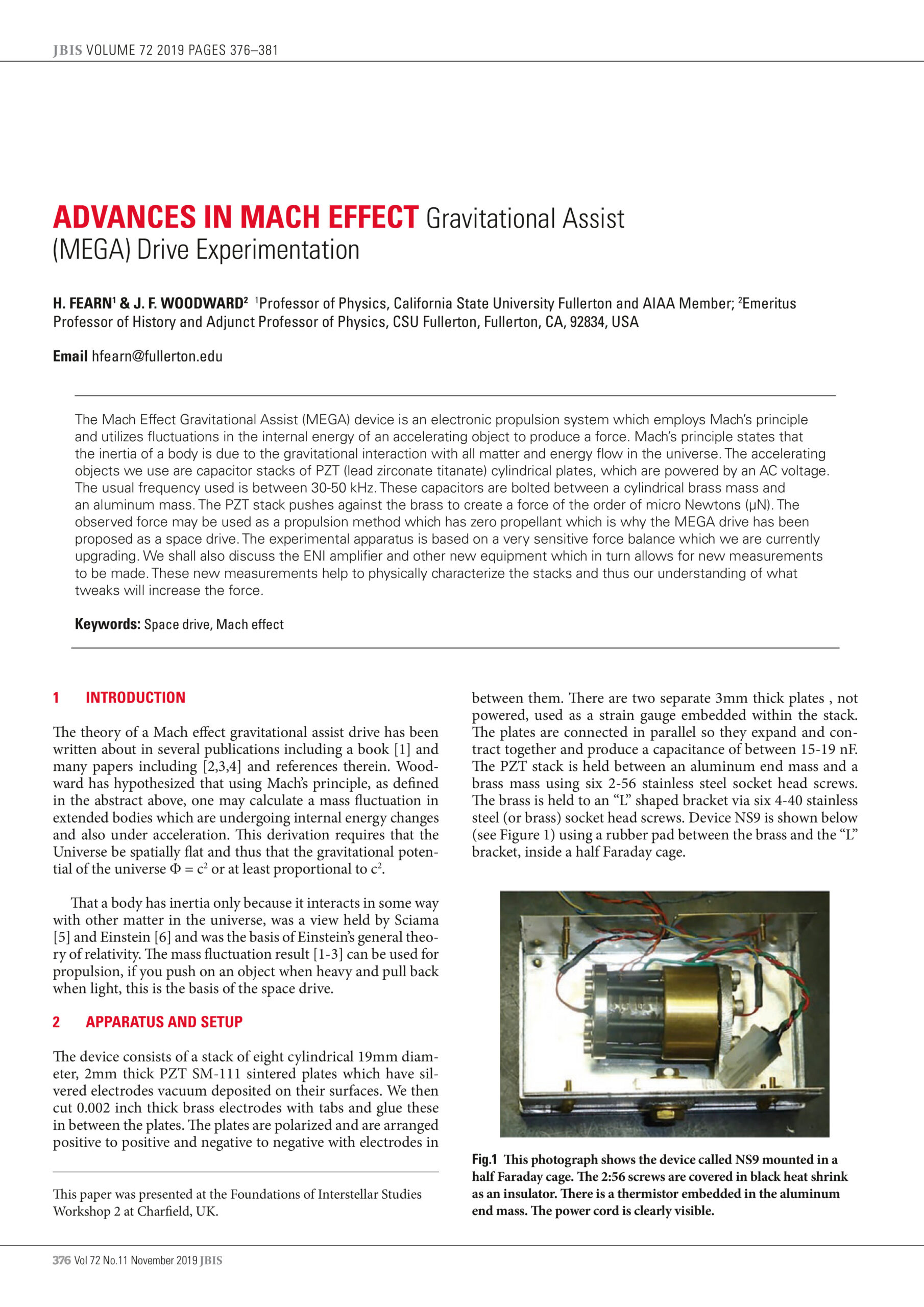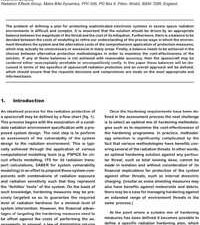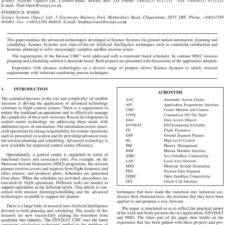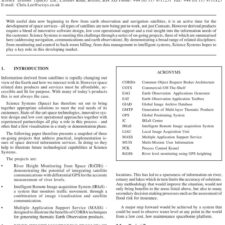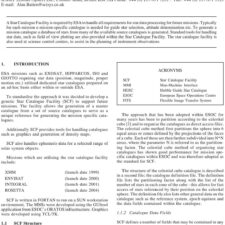Advances in Mach Effect Gravitational Assist (MEGA) Drive Experimentation
£5.00
H. Fearn et al. (2019), JBIS, 72, pp.376-381
Refcode: 2019.72.376
Abstract:
The Mach Effect Gravitational Assist (MEGA) device is an electronic propulsion system which employs Mach’s principle and utilizes fluctuations in the internal energy of an accelerating object to produce a force. Mach’s principle states that the inertia of a body is due to the gravitational interaction with all matter and energy flow in the universe. The accelerating objects we use are capacitor stacks of PZT (lead zirconate titanate) cylindrical plates, which are powered by an AC voltage. The usual frequency used is between 30-50 kHz. These capacitors are bolted between a cylindrical brass mass and an aluminium mass. The PZT stack pushes against the brass to create a force of the order of micro Newtons (μN). The observed force may be used as a propulsion method which has zero propellant which is why the MEGA drive has been proposed as a space drive. The experimental apparatus is based on a very sensitive force balance which we are currently upgrading. We shall also discuss the ENI amplifier and other new equipment which in turn allows for new measurements to be made. These new measurements help to physically characterize the stacks and thus our understanding of what tweaks will increase the force.

